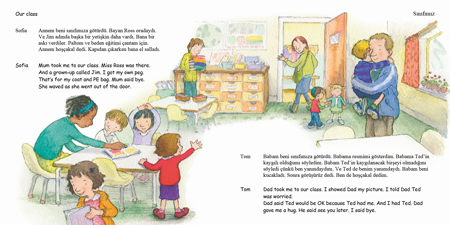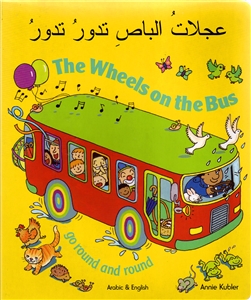
Want your child to learn a second language, but wondering if it will be worth the time and effort? Kids’ schedules are already full of school and extracurricular activities, so parents must be selective when taking on anything new. Read on for some compelling reasons why bilingualism is definitely worth the effort.
Bilingual Babies: Cognitive Benefits from Infancy
Researchers have found that babies from bilingual homes have greater cognitive abilities, specifically with what’s known as “attentional control.” This difference occurs even when they’re too young to speak. Babies from bilingual households appear to be better than their monolingual peers at learning and anticipating new patterns.
Young bilingual children have also been shown to have greater fundamental social and emotional skills that evolve from their attentiveness to social cues when multiple languages are spoken at home.
Infants are very open to learning new languages, especially when there is a lot of interactive dialogue between baby and caregiver(s). Studies show that the more back-and-forth interaction young kids are exposed to, the greater the academic and cognitive outcomes they have later, during school-age years. This type of interactive dialogue, in the form of playtime or when reading bilingual baby books together, is also quality bonding time, with huge emotional and psychological benefits for babies and parents.
For young dual language learners (DLLs) who speak the non-majority language at home, it is important to stress the benefits of bilingualism early on. Even before entering school, framing bilingualism as an asset – and not a liability – gives young DLLs a boost when they enter kindergarten. When DLLs are given support in their home language during preschool years, they perform better across all academic and social measures after they enter elementary school.
School Years: Academic Benefits of Bilingualism

English learners who go through bilingual or dual language programs in school are more likely to graduate, go to college, and have higher-paying careers than their peers who lose their home language. Students are proud to see their home languages reflected in the classroom, whether it’s through bilingual books, multicultural posters or class activities.
Students attending dual-language classes – whether they’re learning English or another language – also tend to be happier, have better attendance, fewer behavioral problems, and have higher test scores.
Across the country, more schools are embracing fluency in multiple languages by offering a special award called the “Seal of Biliteracy” that recognizes the hard work of becoming biliterate. Students who earn the Seal are more attractive to colleges and employers, leading to positive effects on earning potential over their lifetimes.
Adulthood: Bilingual People Become Global Citizens
According to the US Census, about 25% of Americans can converse in a second language. Compare that number to the 50% of people globally who are bilingual or multilingual. In some parts of Europe, that figure is actually closer to 100%.
From a strictly practical perspective, being a nation of monolinguals puts us at a disadvantage, not just in terms of the world economy, but in terms of our national security as well. It’s imperative that we have citizens who can clearly communicate with business and political leaders from around the world.
Not only that, bilingualism helps to bridge the divide across cultures and nations. Speaking other languages makes us better global citizens. At a time when tensions among countries and cultures runs high, knowing the language of another group of people is one of the best ways to understand their perspective, and find common ground.
For families who have recently immigrated, maintaining the home language is a way to connect younger generations to their families’ history and culture.
Lifelong: Potential Brain Benefits of Bilingualism
Studies have found that bilingual people are better at multitasking. Because their brains have a more robust executive control system (from switching off the language that is not needed), bilinguals are generally better at tuning out distractions, allowing them to focus on what is most relevant at any given moment.
Researchers have also found evidence that speaking more than one language can delay the onset of dementia in Alzheimer’s patients by as many as 5 years.
These are just a few of the many amazing benefits of bilingualism. And the great news is, experts say you don’t have to achieve full fluency before you begin experiencing them. So sweep those hesitations aside, and set out on your language learning journey!





[…] are a lot of compelling reasons why bilingualism is a valuable asset. Knowing other languages connects us to other cultures, and helps us become better global […]
[…] why it’s great to speak more than one language. Science has found that bilingual kids enjoy cognitive, social and emotional benefits. Moreover, these advantages begin in infancy and continue throughout the school […]
[…] but what about for children? Does teaching them a foreign language make a difference? The benefits of exposing children to a second or even a third language cannot be understated. Not only can they learn multiple languages, but they can do it with a lot […]
[…] to speak more than one language in childhood. Science has found that bilingual kids enjoy cognitive, social, and emotional benefits. These advantages begin in infancy and continue throughout the school years into […]